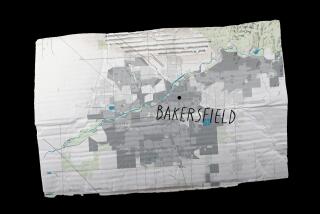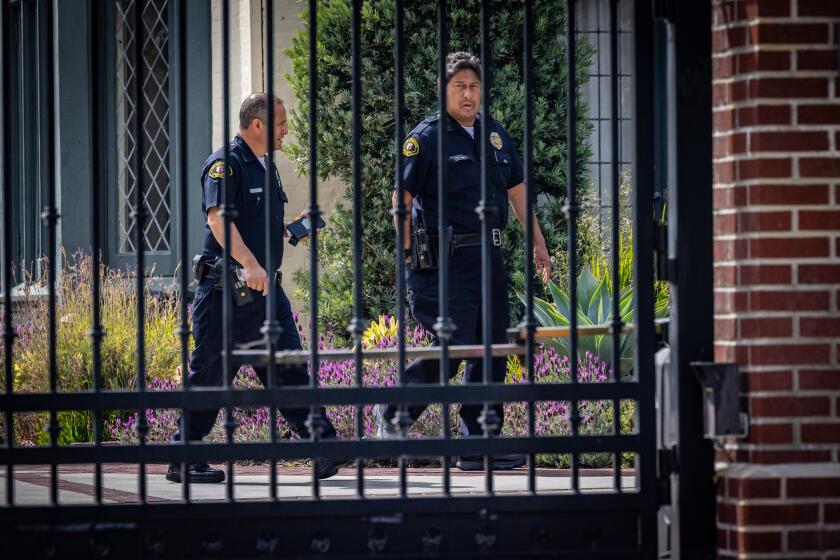Charge That Chief of POW Camp Brutalized Iraqis May Be Dropped
The legal officer leading an investigation into allegations that Marines brutalized Iraqi prisoners said Thursday that he was leaning toward throwing out the charge against the former top officer at the POW camp.
Col. William Gallo said he has seen no evidence that having prisoners stand for hours with sandbags over their heads while handcuffed constitutes brutality.
“Right now, I’m not offended by that treatment,” Gallo said on the second day of a hearing into an allegation of dereliction of duty against Maj. William Vickers, who was commanding officer of a prisoner of war camp about 180 miles from Baghdad.
Gallo, a Marine reservist who is an assistant U.S. attorney in San Diego, said that, based on the witnesses so far, he favors recommending that Maj. Gen. James Mattis, commander of the 1st Marine Division, drop the charge against Vickers. The hearing resumes today.
Prosecutors assert that prisoners were brutalized by a treatment called “50-10,” during which they were forced to stand for 50 minutes per hour.
“I’ve heard very little, frankly, that leads me to believe this charge should go forward” to a court-martial, Gallo said. “The only thing I’ve heard that seems damning is this 50-10, but even that I don’t find all that egregious.”
Vickers is one of eight Marines from 2nd battalion, 25th Marine Regiment, a reserve infantry unit from the New York region, charged with mistreating prisoners at the Whitehorse detention camp near the battle-scarred city of Nasiriyah.
If sent to a court-martial and convicted of dereliction of duty, Vickers could be imprisoned for six months and booted from the Marine Corps.
Two of the Marines are charged with negligent homicide in the choking death of a former Baath Party officer.
Lance Cpl. Angel Flores, who is not charged, testified that the Marines kept the prisoners standing to control them and make them more compliant when interrogation officers arrived to question them. Flores said the longest he heard of prisoners being ordered to stand was eight hours.
Flores said that when prisoners arrived, they were “bagged” -- slang for having a burlap sack put over their heads -- handcuffed, strip-searched and made to stand.
Some balked but were easily subdued, he said.
“Most of the time yelling was enough,” Flores said. “They came in thinking they were going to die, anyway.”
Maintaining the prisoners’ sense of fear is an appropriate treatment as long as excessive pain is not inflicted, several witnesses testified.
Chief Warrant Officer Matthew Carlisle, a Marine interrogator, said guards should “make sure the fog of war, the shock of capture, the fear of the unknown is still instilled” in prisoners.
But military prosecutors assert that the “50-10” treatment violates the military’s own rule against inflicting “intense pain to body or mind” by forcing prisoners to “stand, sit or kneel in an unusual position for long periods of time.”
Prosecutors said Vickers is guilty of dereliction of duty because he allowed Marines under his command to force prisoners to comply with “50-10” and to occasionally hit them.
An infantry officer, Vickers ran the detention camp for six weeks after the fall of Baghdad.
Vickers is the first of the Marines to undergo an Article 32 hearing, equivalent to a civilian preliminary hearing. Gallo is the hearing officer, similar to a civilian judge.
Marine guards said the “50-10” treatment was ordered by interrogators from the Human Exploitation Team, but the officer in charge of interrogators said no such order was given.
More to Read
Start your day right
Sign up for Essential California for news, features and recommendations from the L.A. Times and beyond in your inbox six days a week.
You may occasionally receive promotional content from the Los Angeles Times.






